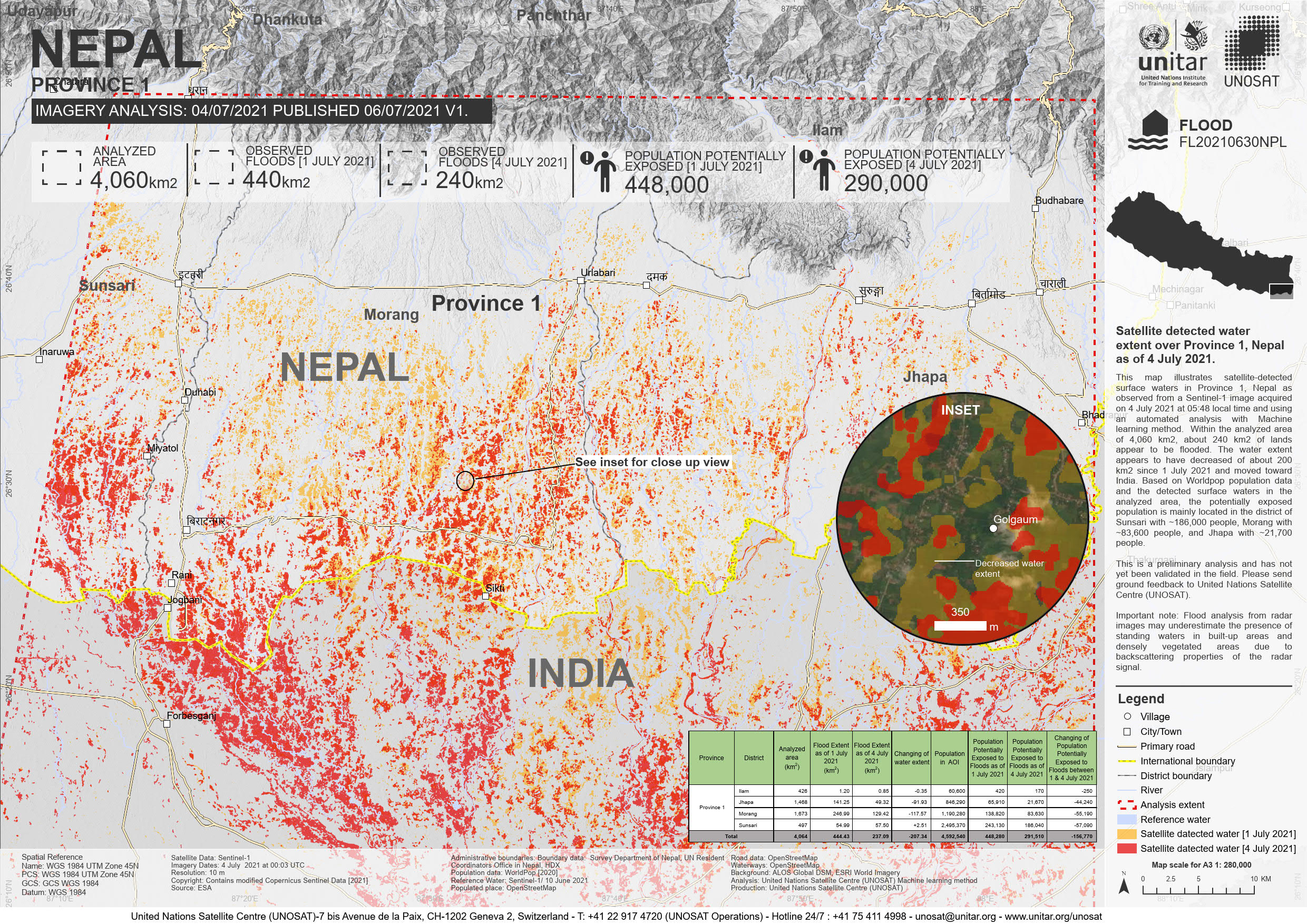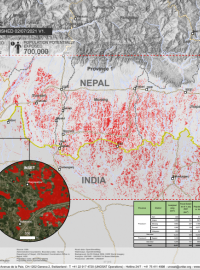
Product Links
- PDF (9.2MB) - Static viewing and printing
- SHAPEFILE - Download a Shapefile of data
- WEBMAP - Dynamic viewing in a browser
- GEODATABASE - Download data in the ESRI format
- TABLE - Excel
This map illustrates satellite-detected surface waters in Province 1, Nepal as observed from a Sentinel-1 image acquired on 4 July 2021 at 05:48 local time and using an automated analysis with Machine learning method. Within the analyzed area of 4,060 km2, about 240 km2 of lands appear to be flooded. The water extent appears to have decreased of about 200 km2 since 1 July 2021 and moved toward India. Based on Worldpop population data and the detected surface waters in the analyzed area, the potentially exposed population is mainly located in the district of Sunsari with ~186,000 people, Morang with ~83,600 people, and Jhapa with ~21,700 people.
This is a preliminary analysis and has not yet been validated in the field. Please send ground feedback to United Nations Satellite Centre (UNOSAT).
Important note: Flood analysis from radar images may underestimate the presence of standing waters in built-up areas and densely vegetated areas due to backscattering properties of the radar signal.
Satellite Data: Sentinel-1
Imagery Dates: 4 July 2021 at 00:03 UTC
Resolution: 10 m
Copyright: Contains modified Copernicus Sentinel Data [2021]
Source: ESA
Administrative boundaries: Boundary data: Survey Department of Nepal, UN Resident Coordinators Office in Nepal, HDX
Population data: WorldPop [2020]
Reference Water: Sentinel-1/ 10 June 2021
Populated place: OpenStreetMap
Road data: OpenStreetMap
Waterways: OpenStreetMap
Background: ALOS Global DSM, ESRI World Imagery
Analysis: United Nations Satellite Centre (UNOSAT) Machine learning method
Production: United Nations Satellite Centre (UNOSAT)
Click here

